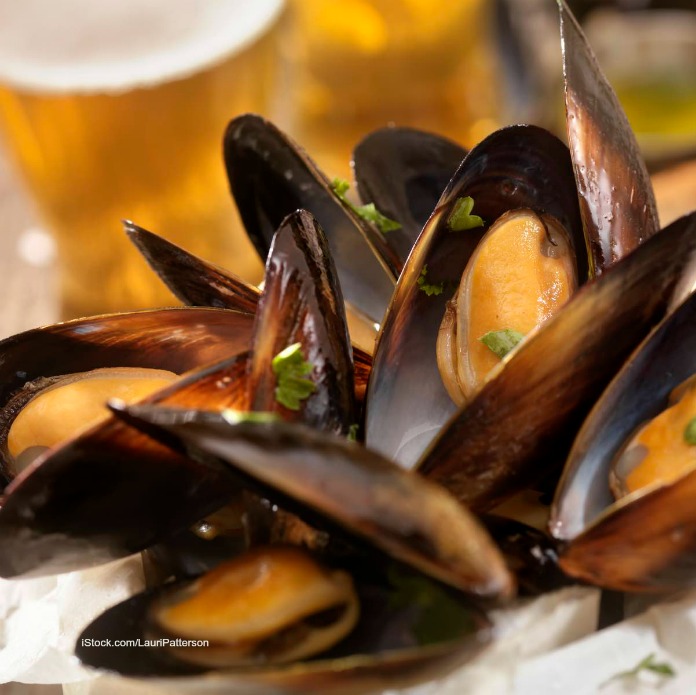An Alaska death from PSP triggers a warning from health officials in that state. Paralytic shellfish poisoning (PSP) occurs when a person is exposed to paralytic shellfish toxin. This is the first known PSP fatality in that state since 2010, although serious illnesses are reported more often.

Since 1993, there have been four cases of PSP deaths in Alaska: one in 1994, one in 1997, and two in 2010. During that same time frame, there have been more than 100 cases of paralytic shellfish poisoning in that state.
The person who died ate blue mussels and snails that were collected from a Dutch Harbor beach on July 4, 2020. The shellfish were cooked first; like most toxins, PSP is not rendered inactive by heat.
The person did have underlying health conditions that contributed to death, but the primary cause of death was PSP toxin exposure. Symptoms began about four hours after eating the shellfish, beginning with tingling in teh fingers, numberless, a floating sensation, and vomiting. Further symptoms included numbness in their mouth, weakness in the pans, and pain in the neck and back. Two other people ate smaller amounts of the same shellfish but never developed symptoms, which points out the variable nature of food poisoning.
Officials then collected blue mussel samples from the beach on the same day the shellfish were eaten. Lab tests showed that the mussels had more than 100 times the safe regulatory limit of PSP.
Public health officials immediately issued warnings to the community in this Alaska death from PSP. The Alaska Sea Grant Marine Advisory Program along with the Iliuliuk Clinic and the Knik Tribe of Alaska posted flyers and social media notices and sent email and fax warnings. Notices were also translated into Spanish, Vietnamese and Tagalog. Alaska Sea Grant and Iliuliuk Clinic staff also did radio interviews, produced a radio public service announcement and are posting warning signs at popular harvesting beaches.
The toxin is produced by shellfish when high levels of algal toxins are consumed by the fish. Recent PSP reports from communities in the same area have found dangerous levels of toxins in butter clams and/or blue mussels from beaches in Craig, Chignik Lagoon, Hydaburg, Ketchikan, Kodiak, Kasaan, Juneau, Metlakatla, and Unalaska, among others.
All recreational shellfish harvesters should know this: There are NO beaches certified or designated as “safe” beaches for shellfish harvesting in Alaska. Anyone eating non-commercial shellfish does so at his or her risk. Commercially harvested shellfish are safe to eat because those products are regularly teated for the toxins that cause PSP.




